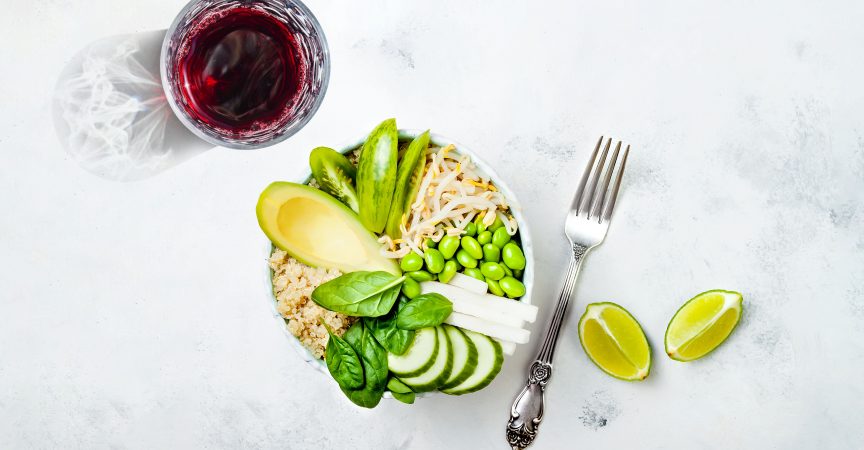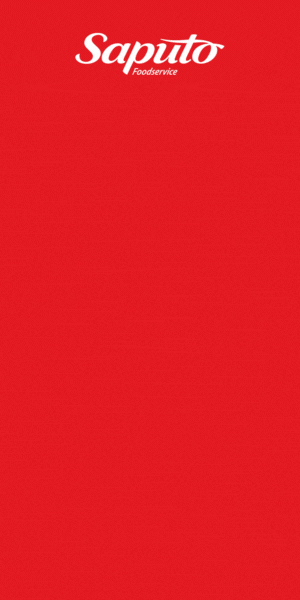Vegan wine: the vegetarian-friendly tipple
The popularity of plant-based diets is on the rise. But most consumers and restaurant industry workers don’t realize that many wines aren’t suitable for those following vegan lifestyles.
On a crisp fall evening in Yorkville, one of Toronto’s poshest neighbourhoods, a team of chefs at the vegan restaurant Planta is meticulously assembling an impressive 120 plates of agnolotti to serve to a packed house. Thin rounds of beetroot folded in half serve as the “pasta” shells, enveloping a flavourful dollop of pureed rapini and pine nuts with the citrusy zest of lemon confit. One chef carefully applies dots of pale yellow and vibrant green puree to accent the dish. Another wields a set of long tweezers to distribute leafy garnishes on the plate just so.
But it’s not only the food that’s being fussed over this evening—a special one-off event for plant-based diners and those curious about the lifestyle. As these plates are being assembled, Master Sommeliers Jennifer Huether and John Szabo are wielding their own tools—microphones, talking the crowd through the wine they’ve selected to accompany the beet agnolotti that are about to be served. As it turns out, red wine isn’t just for red meat.
 The earthy, slightly bitter flavour of raw beetroot makes an excellent companion for a pinot noir. And if you’re vegan, there’s a wine for that! Vegan wine is a thing; it’s all about how the wine is made. Or rather, what it’s made without. To clarify the wine before bottling, many winemakers use animal-based products such as egg whites, gelatin, even animal blood and fish swim bladder, in a process called fining. The fining agent “collects” small particles, like dead yeast, as it settles to the bottom of the vat and the crisp and clear liquid that wine drinkers desire is decanted off the top. While none of these animal products ends up in the bottled liquid, the use of these items makes the resulting wine unsuitable for those following a plant-based lifestyle. But vegan wines see no animal products used in the winemaking process.
The earthy, slightly bitter flavour of raw beetroot makes an excellent companion for a pinot noir. And if you’re vegan, there’s a wine for that! Vegan wine is a thing; it’s all about how the wine is made. Or rather, what it’s made without. To clarify the wine before bottling, many winemakers use animal-based products such as egg whites, gelatin, even animal blood and fish swim bladder, in a process called fining. The fining agent “collects” small particles, like dead yeast, as it settles to the bottom of the vat and the crisp and clear liquid that wine drinkers desire is decanted off the top. While none of these animal products ends up in the bottled liquid, the use of these items makes the resulting wine unsuitable for those following a plant-based lifestyle. But vegan wines see no animal products used in the winemaking process.
“A lot of people who are not in the wine business, and don’t understand what’s used in filtering and fining, would probably assume that wine is vegan,” says Jennifer Huether. “There’s a lack of understanding and awareness.”
It isn’t just the winemaking process that affects whether a wine is considered vegan. For most that follow plant-based lifestyles, the use of manure for fertilization or sheep to graze unwanted foliage from vines would not be accepted. Strict vegans might even be conscious of the type of glue used to affix a label to the bottle and also avoid wines with caps dipped in beeswax.
There are a few reasons why vegan wine is flying under the radar, according to Huether. A lack of accreditations to certify vegan wines makes it difficult for consumers and industry members to identify which wines are actually vegan when, in fact, many wineries are already making vegan wines. “If you’re a wine drinker, 20 percent of the wines you happen to consume and love could be vegan,” says Huether. She also believes that there could be a stigma attached to labelling a wine as vegan, similar to the stigma around vegan food, for being less flavourful or enjoyable. “But you would never know,” Huether attests.
As the popularity of veganism grows, Huether believes that plant-based lifestyles are on the rise and that consumer demand will increase in the future. Similarly to how some restaurants denote vegan food options on their menus, wine lists may soon adopt a similar marking system.
“I think we’re going to see more wine lists with a little note to mark what would be considered vegan, or biodynamic, or organic, or sustainable,” predicts Huether. “It’s because people want to know.”
But with the lack certifications and accreditations, Huether says the best approach for restaurant and bar owners looking to highlight or add more vegan options to their wine lists is to simply ask their suppliers which options qualify as vegan. Then select a few vegan options—a sparkling, rosé, a couple styles of white and red—round out to their wine list.
Sommeliers and restaurant staff can also beef up (pun intended) on pairing vegan food with wine. While wines are traditionally matched with the fish or meat served, Huether presses that plant-based dishes still offer a wide range of flavours to play with. “With vegan food, we get a lot of umami flavours from dashi, certain vinegars, Worcester, tamari,” Huether explains. “You can play off of those flavours with an older red wine like a Cabernet Sauvignon or Bordeaux which has a lot of umami in it.”
While vegan wine list denotations are rare at the moment, Huether encourages restaurant and bar owners to become early adopters. “It’s an opportunity to interact, to engage, to show yourself as an industry leader and as somebody who is ahead of the curve,” she says. “Because this lifestyle is not going away.”








I have started drinking vegan wine because I have been promoting the safety of animals for ages. If you want to know about the best vegan rose wine, then I would suggest you check out this website.